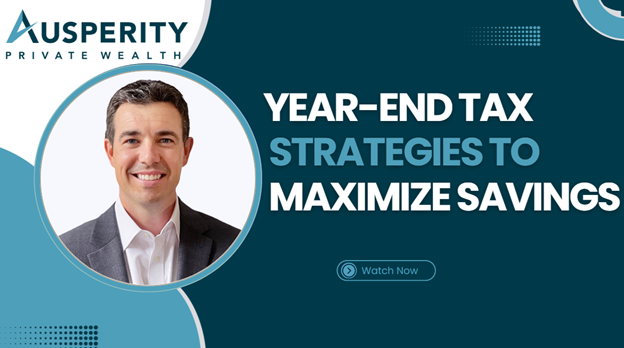Navigating the abundance of financial advice out there can feel overwhelming, and knowing who to trust is crucial. In our latest video, we break down a key concept that can make all the difference: What is a fiduciary financial advisor, and why does it matter?
Understanding the fiduciary standard is essential for anyone seeking financial guidance, as it confirms that your advisor is putting your financial goals above their own.
Click below to watch and learn how this can safeguard your financial future.
Transcript
Introduction
Hello, I’m Geoff Degener, founder and managing partner at Ausperity Private Wealth. Today I want to talk to you about the importance of working with a fiduciary financial advisor. Fiduciary advisors are legally and ethically required to act in your greatest interests, prioritizing your financial well-being before their own.
The Value of Choosing a Fiduciary Advisor
Choosing a fiduciary gives you confidence knowing the advice you’re getting is unbiased and focused solely on helping you pursue your financial goals. Let’s dig a little deeper into what being a fiduciary actually means and why it should matter to you.
What It Means to Be a Fiduciary Financial Advisor
A fiduciary financial advisor is somebody who is legally obligated to put your needs ahead of their own or their firm’s bottom line. That means understanding your long-term goals, risk tolerance, financial situation, and recommending investments that make sense for you—even if they don’t offer an extra kickback or commission for the advisor.
Differences Between Fiduciary and Non-Fiduciary Advisors
In contrast, a non-fiduciary advisor might push investments that earn them a bigger payday, even if it’s not the best move for you. Working with a fiduciary gives you a real edge over someone who’s not legally bound to prioritize your interests.
Benefits of Working with a Fiduciary Advisor
Here’s what you gain: a higher degree of trust and security, a higher standard of care, a legal obligation to your priorities, reduced conflicts of interest, transparency, objective advice, and a focus on long-term goals over short-term sales.
Why Independence Matters in Financial Advice
Some may ask why we decided to leave the big wire house firm and bank platform. The answer was simple. We were tired of being told no when it came to doing what was best for our clients. At the wire house, you’re stuck playing by their rules, pushing their products, and operating inside their box.
We left the machine behind. We chose independence because we believe in one thing above all else: putting our clients first—always. That means real fiduciary advice, no smoke, no mirrors, just smart, transparent planning with zero hidden agendas.
Questions to Consider About Your Financial Advisor
Are you working with someone who could be incentivized to sell something that benefits them more than you? You deserve better. Understanding what a fiduciary is and why it matters is a critical first step in protecting and growing your wealth.
Contact Ausperity Private Wealth
If you’re looking for advice built around your goals, your values, and your future, then you may want to work with a fiduciary. To schedule a meeting, give us a call at 856-252-0104 or email [email protected]. Reach out to learn more about how we can provide transparent advice that’s focused on what’s best for you—not someone else. Thank you.









